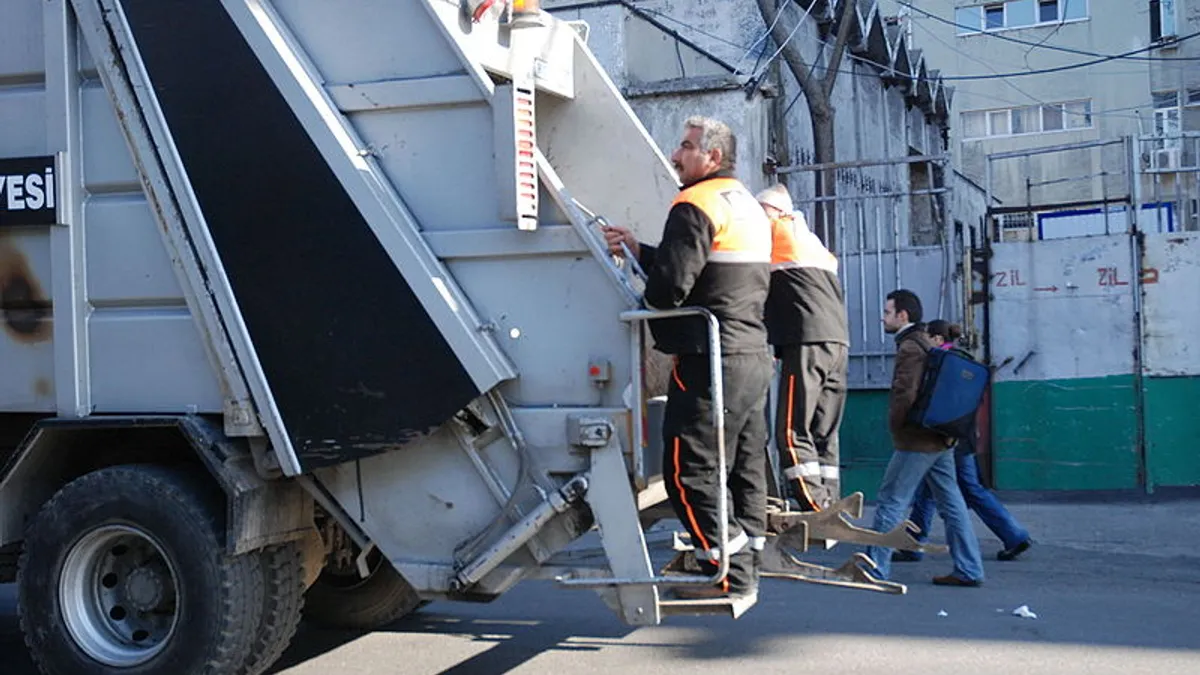Almost a decade since an Ohio waste hauling firm coined the "Slow Down To Get Around" concept after an accident killed an employee, Alabama, Florida, Georgia, West Virginia, Wisconsin, Michigan and now Indiana have enacted a law protecting waste workers. And in North Carolina, "Slow Down Get Around" legislation is working its way through the state legislature.
Over the years, the National Waste & Recycling Association has spearheaded the nationwide effort to adopt this legislation. But a November 2014 study of about 2,000 people revealed 38% are tempted to speed around a garbage truck, more than any other service vehicle. The word needs to spread further about the concept, industry leaders say.
"These laws are relatively new," said Sharon Kneiss, president/CEO of NWRA. "A key to this is to make sure the public is aware of the laws; and also, enforcement."
The legislation has not come without a cost. Sanitary workers are still being killed and maimed while doing their jobs, and sometimes those accidents prod legislators to action.
Motorists pose danger
One of the leaders in the ongoing effort to pass this legislation nationwide is David Biderman, executive director and CEO of the Solid Waste Association of North America, based in Silver Spring, MD. The "Slow Down" concept is easy for the public to grasp, he said.
"'Slow Down To Get Around' is a different take on 'don’t use your cell phone, don’t text.' When motorists crash into a garbage truck because they’re distracted, it’s often much worse for them," Biderman said, noting that NWRA's chapters took the lead in pursuing Slow Down to Get Around bills this year. "In most states, these efforts were supported by the Solid Waste Association of North America."
There’s no question that part of the danger of sanitation work is due to bad driving by other motorists. A recent accident in Florida illustrates the point: after ramming into the back of a garbage truck, the driver was in the intensive care unit of a local hospital. The driver, former USF basketball star B.B. Waldron, was seriously injured.
Cognitive dissonance of some drivers could be due to the "invisibility factor" of sanitation workers — just like other service industry workers such as waiters, cab drivers and baristas, many people ignore such workers until they need them. Or worse, they never talk to them until they find a problem with the worker or the company.
Biderman has been working for years to educate the public about the need to have regard, and caution, while driving around sanitation workers and their trucks along America’s roadways.
"SWANA has been a partner with NWRA in lobbying state officials who enact laws protecting the hardworking men and women who do the difficult job of collecting America’s waste and recyclables," Biderman said.
Former industry worker Mark Friend, who lost part of his left leg when a car pinned him to his garbage truck, recently said weak enforcement of the slow down law is allowing similar accidents as the one he had to continue to happen.
Friend’s accident inspired Wisconsin’s "Slow Down" law, which was passed in 2013.
"For several years, being struck by a motorist was the leading cause of fatality for our workers," Biderman said. "But not anymore."
Correction: An earlier version of this story had an incorrect quote. The quote should read, "For several years, being struck by a motorist was the leading cause of fatality for our workers," Biderman said.













